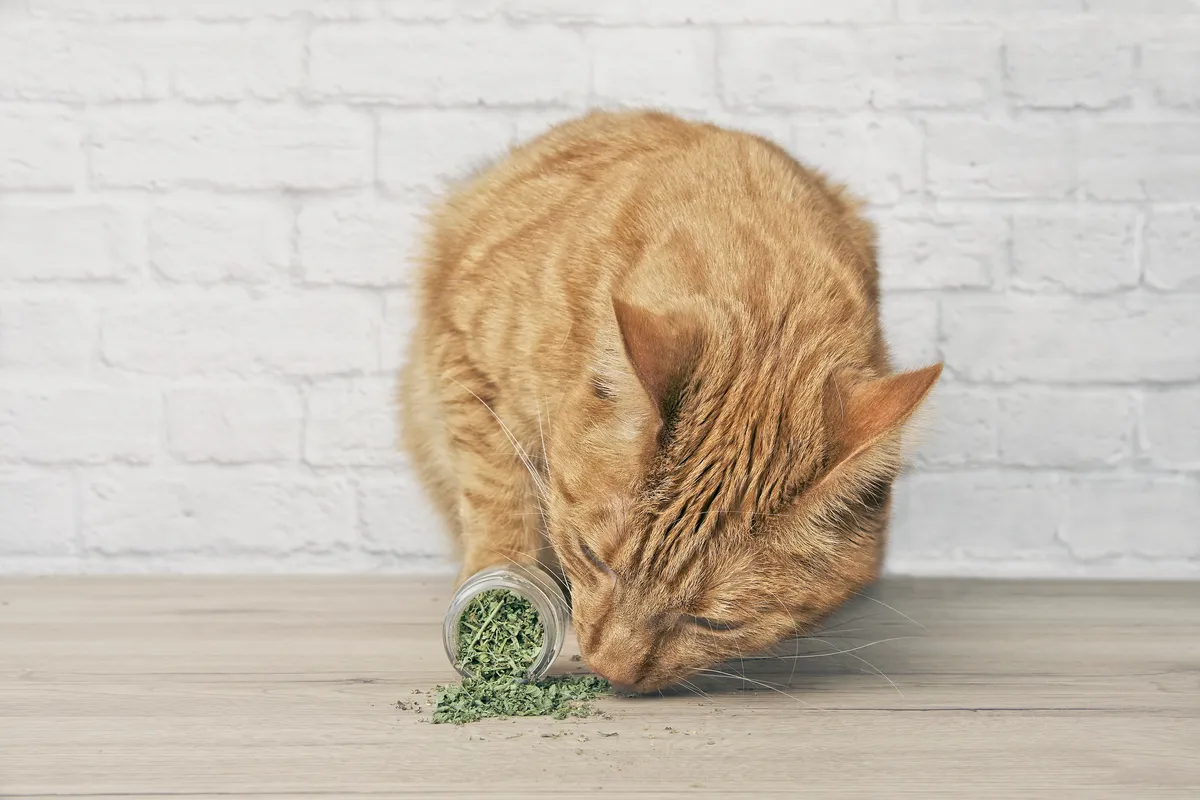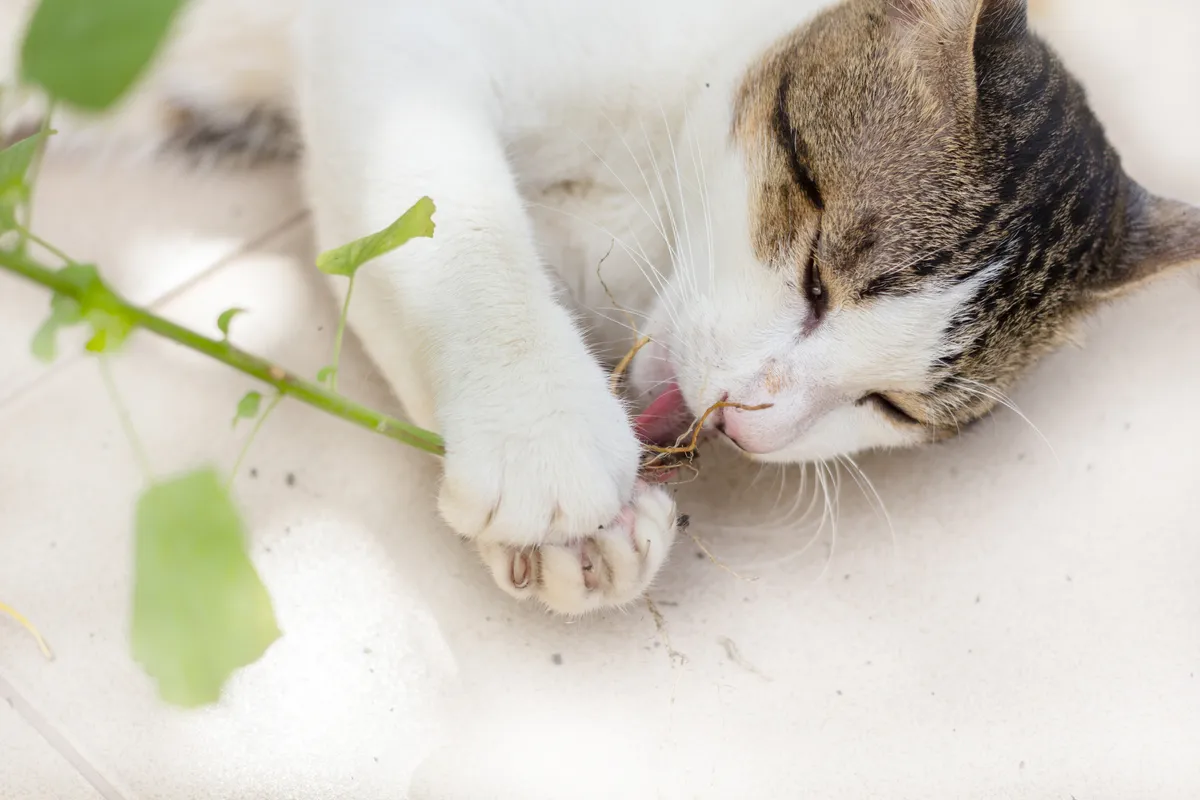There’s one thing moggies, big and small, love more than anything else: catnip. Just a sprinkle of the stuff seems to send our feline friends into euphoria.
In fact, scientists have even discovered that wild, big cats also display this behaviour. So, what’s the secret behind catnip’s hold over our furry friends?
What actually is catnip?
Catnip and silver vine are two plants which at least appear to send cats into a daze. Catnip, from the mint family, is distinct from silver vine, a species of kiwifruit in the Actinidiaceae family of flowering plants.
Both catnip and silver vine contain similar biochemical molecules which are key to understanding the behaviour we see from cats. Researchers from Japan and the UK investigated this response to catnip and silver vine to find out why domestic cats are attracted to these plants.
Their findings, published in Science Advances, found that these chemicals, nepetalactone and nepetalactol, acted as attractants in both catnip and silver vine. Yes, nepetalactone will help us explain why cats love catnip.

Why docats like catnip so much?
The team found that cats have evolved to love catnip as it may protect them from mosquitos and possibly other parasites.
Researchers in thisstudy isolated those magic catnip compounds, nepetalactone and nepetalactol, and measured cats’ biological responses to them.
Directly after giving cats the option of nepetalactol-soaked paper to rub themselves on, the scientists introduced mosquitos into the environment and simply counted the number of mosquitos landing on the cats. They observed that the cats which did not rub themselves against the soaked paper were more likely to be attacked by mosquitos.
Read more about cats:
- Why do cats knead?
- Want to make friends with a cat? Blink slowly, say scientists
- Why you’re stroking your cat completely wrong (and how to do it right)
And that’s not all. They observed that a reward pathway (what experts call the μ-opioid system), which regulates rewarding feelings like intense happiness, is activated when cats respond to catnip and silver vine.
While the researchers hope to further investigate these interactions, they essentially proved there’s a biological system underpinning the positive behaviour we observe.

Do any cats hate catnip?
In general, a positive reaction to catnip is considered a hereditary response in felines. However, research has observed that around 30 per cent of domestic cats do not respond to catnip and 20 per cent do not respond to silver vine, showing only indifference.
Plus, scientists found that tigers appear indifferent when offered catnip and even responded “disapprovingly” to silver vine, taking a sniff, turning and walking away. Some researchers even reported a few tigers them shaking their heads at the catnip.

How long does catnip last?
Researchers have watched cats engage positively with catnip for around 10 minutes, but not all cats are the same. As the response to these compounds is likely hereditary, there will be differences across individual cats – as well as different species.
Though its impact looks drug-like to us, we have known since 2012 that while they produce positive responses, catnip and silver vine are not addictive to cats. Similar reward systems are involved, but there is no evidence of addictive behaviour and researchers argue this is due to the type of internal endorphins activated by catnip.
Is there a catnip for dogs?
Sadly, there isn’t much research into canine catnips. However, in the 1960s, another compound also found in silver vine, actinidine, appeared to result in “some activity” in dogs according to the researchers.
However, no further work has explored this further, or the general observations from dog owners that star anise is the catnip for dogs.
Researchers on the Science Advances paper hope to further investigate the biology behind cats’ response to catnip. In doing so, they may help us understand why dogs do not respond in the same way.
“Why is this reaction limited to cats? Why don't non-feline animals react to the plant? To find answers, we want to identify the gene responsible for the reaction. The findings of this study may be used in various applications, including development of new mosquito repellent products,” says Prof Masao Miyazaki, who led the study.
Read more about dogs:
